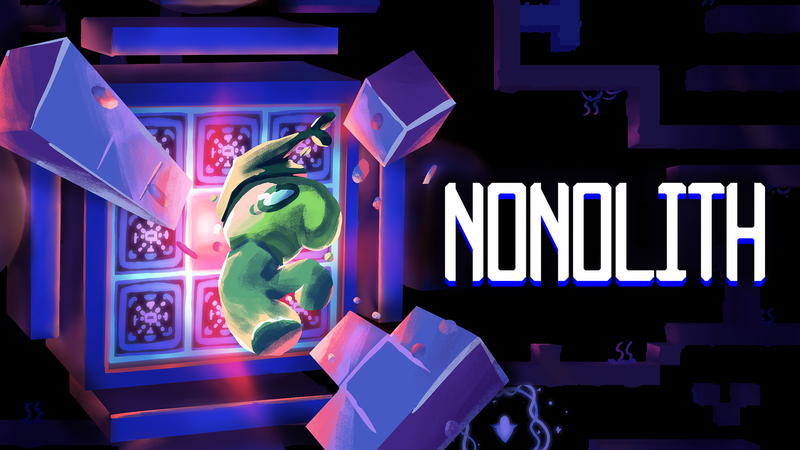Have you ever ordered spaghetti carbonara at a restaurant, only for the waiter to turn up with pasta and bacon in a cream sauce? Now, I love pasta and bacon in a cream sauce, a fact easily discerned by my height to width ratio. But ask any Italian person, and they will tell you (eagerly and at length) that pasta with bacon in a cream sauce is NOT spaghetti carbonara.
Don't worry, you haven't erroneously been redirected to Thinky Food. I say this because Arranger: A Role Puzzling Adventure is a bit like a tasty but FALSE spaghetti carbonara. It's a pleasant, quietly inventive puzzler with a neat central mechanic and a breezy, fun story. But it also claims to be a game that it isn't, and it's important you understand that as we tuck in.
Arranger puts you in the role of Jemma, a young woman who was abandoned by her parents as a child and raised as a foundling in the village where she was discovered. Yet despite residing in the same place all her life, Jemma has never quite fit in with her community. Partly because of her outsider heritage, but mostly because she has a strange ability where the ground moves when she does.
It's a bit like when you get a ribbon of toilet paper stuck to your shoe, only in Jemma's case the ribbon is made from paving slabs that stretch in four directions and can drag entire wardrobes with them. Indeed, anything on the same axis as Jemma will be dragged in the direction she travels, people, plants, pots, pets, it all follows in Jemma's inadvertently chaotic wake.
This ability is part of Arranger's inciting story event, as Jemma leaves her adoptive hometown (which has politely tolerated Jemma's tendency to wreck the place for years) to explore the world and find out more about where she really comes from. But as you've probably guessed, its main raison d'etre is as the central puzzling mechanic, with Jemma's personal conveyor belt at the crux of most conundrums.
Now I'll confess that I wasn't instantly gripped by this as a puzzling concept. The initial challenges mainly involve dragging a single item from one location to another, like a key to open the central gate. Watching entire pathways slide along with you is a snazzy visual effect, especially when you mix up multiple floor tile types, with Jemma dragging chunks of grass and dirt path behind her like a dog that found the muddiest puddle in the park. But mechanically it's a bit simplistic, and it's hard to see how Furniture & Mattress will spin it out across an entire game.
As it turns out, however, the crucial mechanic in Arranger is not the tile sliding. If Jemma runs into a wall, then continues to slide in the direction of the wall, she will immediately teleport to the opposite wall where her ad-hoc conveyor belt starts. And as is the case with the general tile-sliding, any item on her personal conveyor belt will also teleport when pushed into a wall.
This is the secret (cream) sauce in Arranger's not-carbonara. Not only does this ability feel powerful, letting Jemma cross large chunks of the map with a satisfying fwoop, it also enables the designers to build knotty little navigation puzzles into the world. A common scenario will involve two linear paths connected by a 3x3 grid, filled with objects that you have to fwoop around to get from one path to the next. It's worth noting that not all objects will drag behind/in front of Jemma. Some items are affected by a malign force in the world known as static, which freezes them in place. The source of this static is one of the mysteries Jemma hopes to solve, another neat example of how Arranger deftly folds mechanics and narrative together.
As the game progress, the puzzles layer in additional ideas. Some combine Jemma's fwoop-ing with object manipulation, such as moving swords around to clear 'static beasts' that block pathways, or pulling furniture about to block lasers, doing which alters the path structure in certain areas. A particular highlight of Arranger's puzzling are the boss 'fights'. These see Jemma square off against extra-large static beasts in multi-stage puzzles, which often require you to set up the board to move multiple objects in one go. One example involves arranging swords to bring an aquatic beast's towering eyestalk crashing down onto a central island, where Jemma can walk up and give it a good poke. All of these set-pieces are excellent, and I always looked forward to the next boss encounter.
Arranger never lingers on one puzzling idea too long, and rarely does it burden a puzzle with more than two ideas at a time. The upside here is that it never becomes tedious – few puzzles will bamboozle you for more than a few minutes. The downside is that hardened puzzling veterans might find it too easy, although there are more challenging optional puzzles squirrelled away in each area for those seeking sterner enigmas.
What Arranger lacks in challenge, it makes up for in presentation and storytelling. With visual design directed from the artist behind Braid, Arranger's world is similarly classy, colourful without being gaudy, characterful without being ostentatious. It isn't quite as buttoned-down as Braid, however. One of its more stylish flourishes is how it dynamically layers comic-book panels into the surrounding, as you play, smartly layering narrative context to actions not visibly represented in the game world.
Arranger couples its visual presentation with a lightly humorous and unabashedly optimistic script. Jemma is a reflexively polite character, no matter how weird or unpleasant the person or situation she's dealing with. This forms the basis for a lot of winningly daft jokes, such as a scene in which she's asked to corral some deeply cursed sheep.
Arranger has little in the way of problems. It's a smooth, well-crafted, easy-going experience. As I inferred earlier with elaborate pasta metaphor, I do have one point I'd like to raise. On its Steam page, Arranger describes itself as "A breezy RPG without XP or inventory to manage, where everything is handled in-world."
I like Arranger, but with the greatest of respect, it is not an RPG. It might look a bit Zelda-ish in its perspective, and its story follows a lot of fantasy RPG tropes. But Arranger is almost entirely linear in its progression and has no roleplaying systems whatsoever. It's an adventure-puzzler, and a good one at that! But to suggest it's an RPG in any form is simply inaccurate, so don't play it expecting it to be one.
Whatever Arranger is, it's never less than enjoyable, an elegantly designed, gently challenging adventure that clips along merrily, has a surprisingly strong funny bone, and doesn't allow its puzzle mechanics to grow stale. I don't think it's ever more than enjoyable either – this isn't a game that's going to transform your life. But there's enough depth to its apparent simplicity to keep you satisfied for a good few hours, just like pasta and bacon in a cream sauce.







